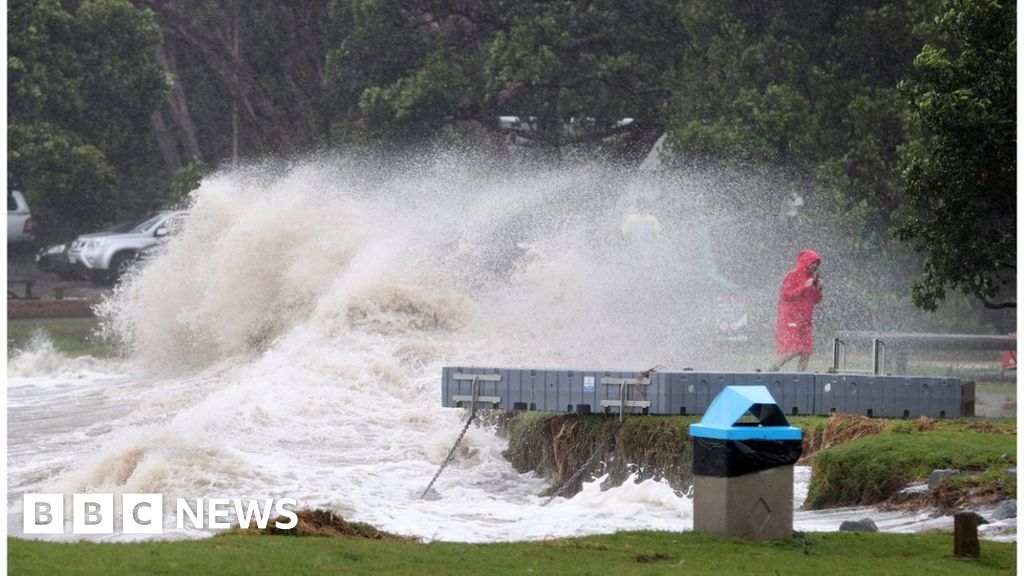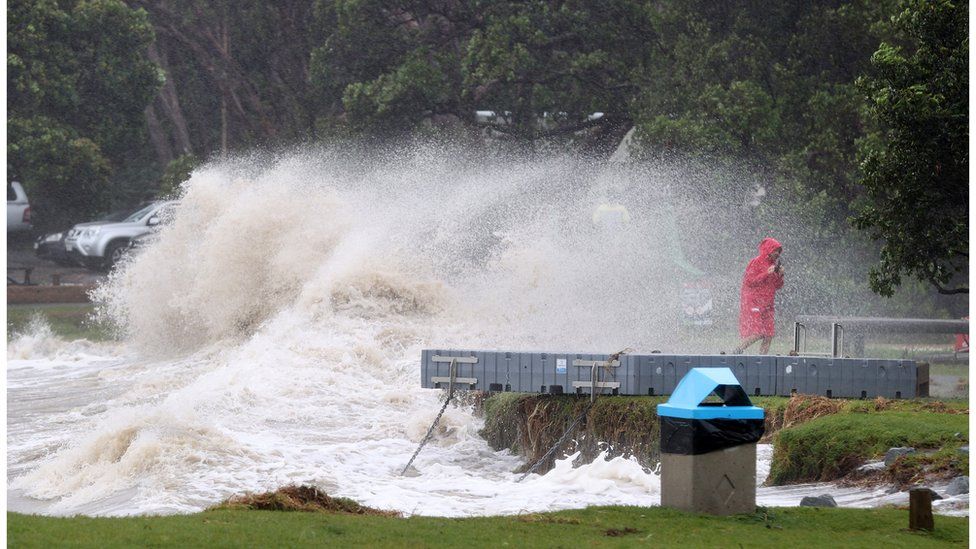

Cyclone Gabrielle lashes Mathesons Bay Beach on the Matakana Coast
By Nicholas Yong & Kathryn Armstrong
BBC News
Some 46,000 homes have lost power as Cyclone Gabrielle lashes the north of New Zealand.
Authorities have issued warnings of heavy rain and winds, and hundreds of flights have been cancelled.
Some areas have declared a state of emergency, as Gabrielle nears the North Island.
It comes weeks after Auckland and surrounding areas were hit by record rainfall that sparked floods and killed four people.
“Extreme weather event has come on the back of extreme weather event,” said New Zealand Prime Minister Chris Hipkins, who announced a NZ$11.5m (£6m; US$7.3m) aid package.
“Things are likely to get worse before they get better.”
Emergency management minister Kieran McAnulty told a media briefing on Monday that the government is considering declaring a national state of emergency for only the third time in the country’s history.
A state of emergency has already been declared in five northern regions including Auckland. The declaration gives local authorities greater power to respond to dangerous situations and allows them to restrict travel and provide aid.
New Zealand’s meteorological agency, Metservice, said Whangarei, a city north of Auckland, had received 100.5mm (4in) of rain in the past 12 hours.
Mr McAnulty added that Monday would be a “critical day” due to the “highly dangerous” combination of high winds and heavy rain. Winds of up to 140km/h (87mph) battered the Northland region, while Auckland Harbour Bridge was rocked by gusts of 110km/h.
He warned that it could take days to restore the power grid as the bad weather made it “unsafe” to work on the network.
Image source, Reuters
A man stacks up sandbags to protect a warehouse before the arrival of Cyclone Gabrielle in Auckland, New Zealand
Weather officials had earlier downgraded Gabrielle’s intensity, but Metservice in its latest update on Monday said it will still bring “significant heavy rain and potentially damaging winds”.
Although the cyclone has yet to make landfall, it has already toppled trees, damaged roads and downed power lines.
Many schools and local government facilities across Auckland and the North Island have closed and people are being asked not to travel if possible.
Meanwhile some 10,000 international Air New Zealand customers were disrupted by the cancellation of 509 flights.
Normal services are expected to resume Tuesday, with the national carrier adding 11 extra domestic flights to its schedule to help with recovery efforts.
Authorities said the two large events have stretched the emergency and recovery response system.
Storm Gabrielle hits New Zealand

